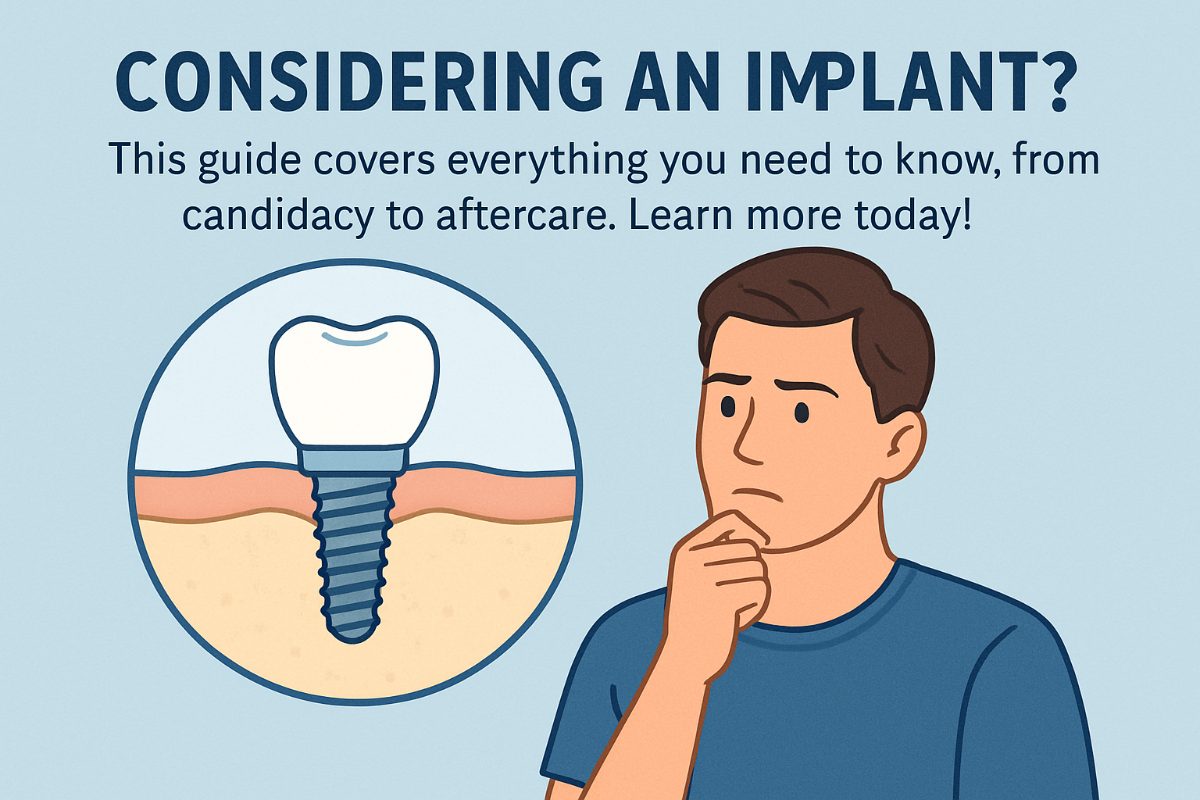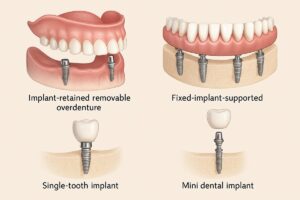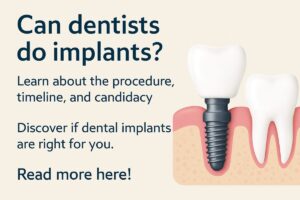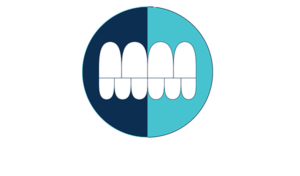This post explains implant i and what you should know before choosing a tooth replacement. It’s for anyone with a missing tooth or teeth who wants a clear, simple guide to how implants work, who can get them, and what to expect. Read on for practical steps you can take next.
If you’re searching for implant i in Midwest City, OK, this guide will help you talk with your dentist, weigh options, and plan your care.
What Is a Dental Implant?
A dental implant is a permanent way to replace a missing tooth. The system has three main parts: the implant (a titanium metal post placed into the jaw), the abutment (a small connector), and the crown (the visible tooth). An implant i in Midwest City, OK refers to using this single-tooth solution to restore chewing, speech, and appearance.
Unlike bridges, implants don’t rely on neighboring teeth. Unlike dentures, implants are fixed and feel more like natural teeth. Implants also help preserve jawbone that can shrink after tooth loss.
Who Is a Good Candidate for an Implant?
Good candidates usually have:
- Healthy gums and no active gum disease
- Enough jawbone to support the implant, or willingness to have a graft
- Non-smokers or patients ready to quit during healing
- Overall good health (controlled chronic conditions are often OK)
If you lack bone, a bone graft or sinus lift can prepare the site. For people who aren’t candidates for single implants, options include a dental bridge, a removable denture, or an All-on-4® style full-arch solution.
The Implant I Process: What to Expect
Typical steps and timeframes:
- Consultation & imaging: Exam, X-rays or CBCT scan, and a treatment plan (1 visit).
- Surgical placement: The implant post is placed in the jaw under local anesthesia or sedation (same-day visit).
- Healing (osseointegration): Bone fuses to the implant — usually 3–6 months. A temporary tooth may be used if needed.
- Abutment & crown: After healing, the abutment is attached and a custom crown is placed (1–2 visits).
- Follow-up care: Routine checkups and good oral hygiene keep the implant healthy.
Pain is usually mild to moderate and controlled with over-the-counter or prescribed pain medicine. Aftercare tips: eat soft foods at first, avoid smoking, keep the area clean, and follow your dentist’s instructions on meds and rinses.
Benefits, Risks, Cost Considerations, and Next Steps
Key benefits:
- Stable chewing and natural feel
- Preserves jawbone and facial structure
- Long-lasting results with proper care
Common risks include infection, implant failure, nerve irritation, or sinus issues (upper jaw). These are uncommon with careful planning and experienced clinicians.
Cost factors: number of implants, need for bone grafting or extra procedures, type of crown, sedation, and geographic location. Many practices offer financing and work with major insurers to make care affordable.
For a straightforward evaluation of implant i in Midwest City, OK, Dentistry By Design offers digital planning, in-house surgical suites, sedation options, and flexible financing. Our team can review your health, explain costs, and build a personalized plan. To learn if an implant is right for you, schedule a consult with Dentistry By Design—our doctors can answer your questions and outline next steps.






